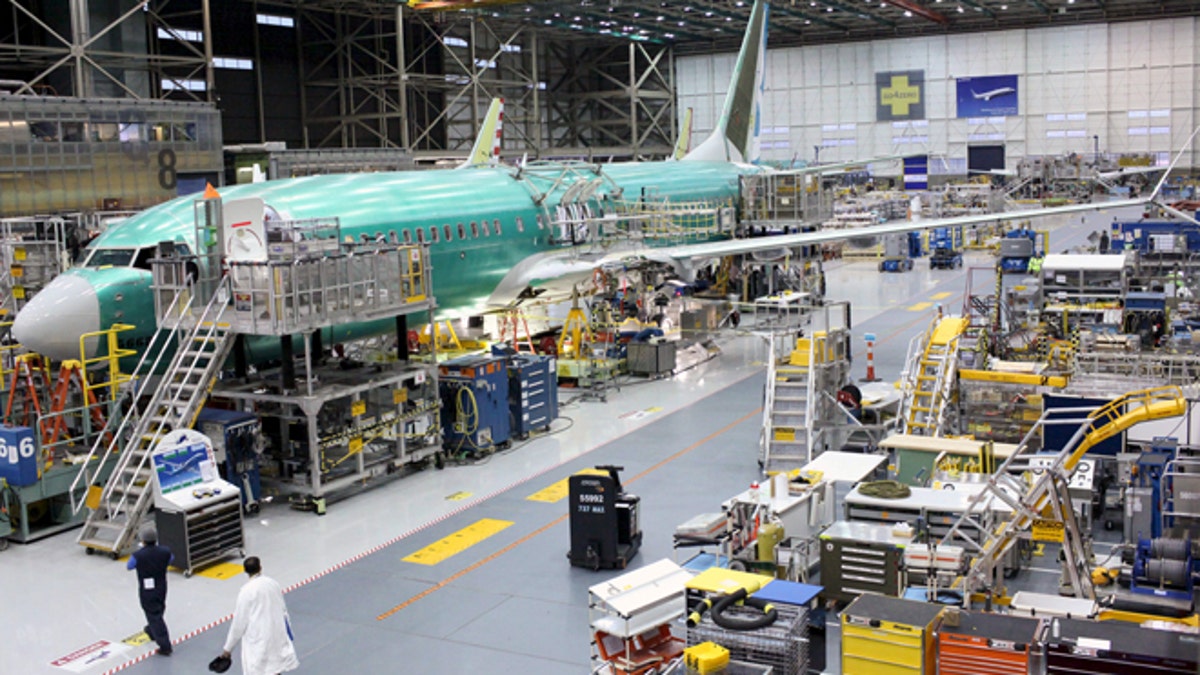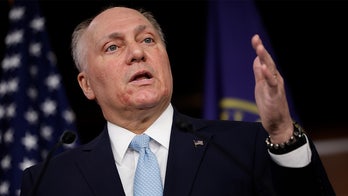Survey: CEO optimism surges on new hopes for tax reform
But if tax cuts don't come soon, will those good vibes turn bad? Hadley Heath Manning and Charlie Gasparino join the debate
Boeing and several other leading U.S. aerospace and defense companies voiced their support on Tuesday for House Speaker Paul Ryan’s controversial tax reform plan – a marked departure from the opposition the package has faced from some of the country’s largest retailers.
Boeing CEO Dennis Muilenburg, who is also chairman of the Aerospace Industries Association (AIA), sent a letter to congressional leaders on Tuesday saying AIA backed the plan. He described it as “comprehensive reforms of our tax code.”
The letter puts the AIA – a lobbying group consisting of 330 aerospace companies based in the United States – clearly in the corner of those in favor of Ryan’s tax-system reform package and it’s hotly debated “border adjustment tax,” which supporters say will fuel growth in U.S. manufacturing jobs.
“This plan is going to help enable our industry to create new, higher-paying jobs and, paired with a growth in exports, will be a major boost to the economy,” Dan Stohr, the director of communications at AIA, told Fox News. “The border adjustment tax is one part of the plan that we strongly support.”

A Boeing 737 MAX plane is seen during a media tour of the Boeing plant in Renton, Washington, U.S. December 7, 2015. (REUTERS/Matt Mills McKnight)
The letter from Muilenburg comes after Boeing – along with fellow corporations like GE, Caterpillar, Oracle and Merck - joined the “American Made Coalition” last month to lobby for tax reform changes.
U.S. manufacturers are particularly in favor of the tax deductions written into the House's package. Under the plan, companies like Boeing – which invests millions into its U.S.-based assembly plants – would receive capital investment deductions along with deductions for labor and inventory costs.
“We need to look at the bigger picture here and see if the upsides of this plan outweigh the downsides,” Stohr said. “Our industry believes they do.”
Opponents of the tax plan, including Wal-Mart – the world’s largest company – and fellow retail giant Target, say that the move to tax all imports would not only hurt their bottom line but also cause steep price increases for consumers on items like gas, clothing and prescription medicines.
“We need tax reform that rewards entrepreneurs and allows businesses to grow and create good-paying jobs that lift working families up,” David French, a senior vice president at the National Retail Federation, said in a press release. “The [border adjustment tax] does just the opposite, penalizing Americans by adding a tax on clothing, food, gas and other necessities while threatening the very industry that 42 million hardworking men and women rely upon for their livelihoods.”
The divide between the country’s manufacturers and retailers mirrors one on the halls of Congress where House and Senate Republicans seem sharply divided over key elements of the plan. GOP lawmakers in the Senate have expressed opposition to a House proposal to replace the current 35 percent tax on corporate profits with the border adjustment tax.
Under the House proposal, American companies that produce and sell their products in the United States would pay a new 20 percent tax on the profits from those sales. But if the company exports its products, the profits from those exports would not be taxed by the United States. However, foreign companies that import goods into the U.S. would have to pay the 20 percent tax.
Besides retailers in the U.S., the proposed border adjustment tax has also become a major concern for some of the U.S.’s biggest trade partners like China and Mexico.
During the campaign, President Trump pledged to attack America's persistent trade deficits, which he blamed for the loss of millions of good-paying factory jobs. Along with border adjustment tax in the House’s plan, Trump has threatened to slap punitive tariffs on imports from China, Mexico and other nations he has accused of trading unfairly.
There is worry among economists who worry that the border adjustment tax and Trump’s tough talk could elevate the situation into all-out trade wars in which foreign nations retaliate by boosting their tariffs on American goods.
“U.S. trade partners are likely to respond to the border tax adjustment by retaliating,” Desmond Lachman, a resident fellow at the American Enterprise Institute, wrote in The Hill. “They would do so by taking similar trade measures as did the U.S. with the aim of boosting their own exports and of penalizing U.S. imports.”
Despite mixed messages on the House plan early on, the White House has recently warmed up to the idea. Bloomberg reported that top Trump strategist Steve Bannon is a major supporter of the tax reform package.
Treasury Secretary Steven Mnuchin said late last month that he is working with Ryan and House Ways and Means Committee Chairman Kevin Brady, R-Texas, on a combined plan that would draw support from lawmakers in both the House and Senate. Mnuchin, however, did not commit to supporting the border adjustment tax but said the administration was "looking closely" at the issues raised by this type of tax.
"We're working behind the scenes very carefully. We're running a lot of numbers and we're taking into account a lot of issues," he said, adding that he hopes to have a proposal ready to unveil in "the near future, and we're committed to get this passed by August."
The Associated Press contributed to this report.





